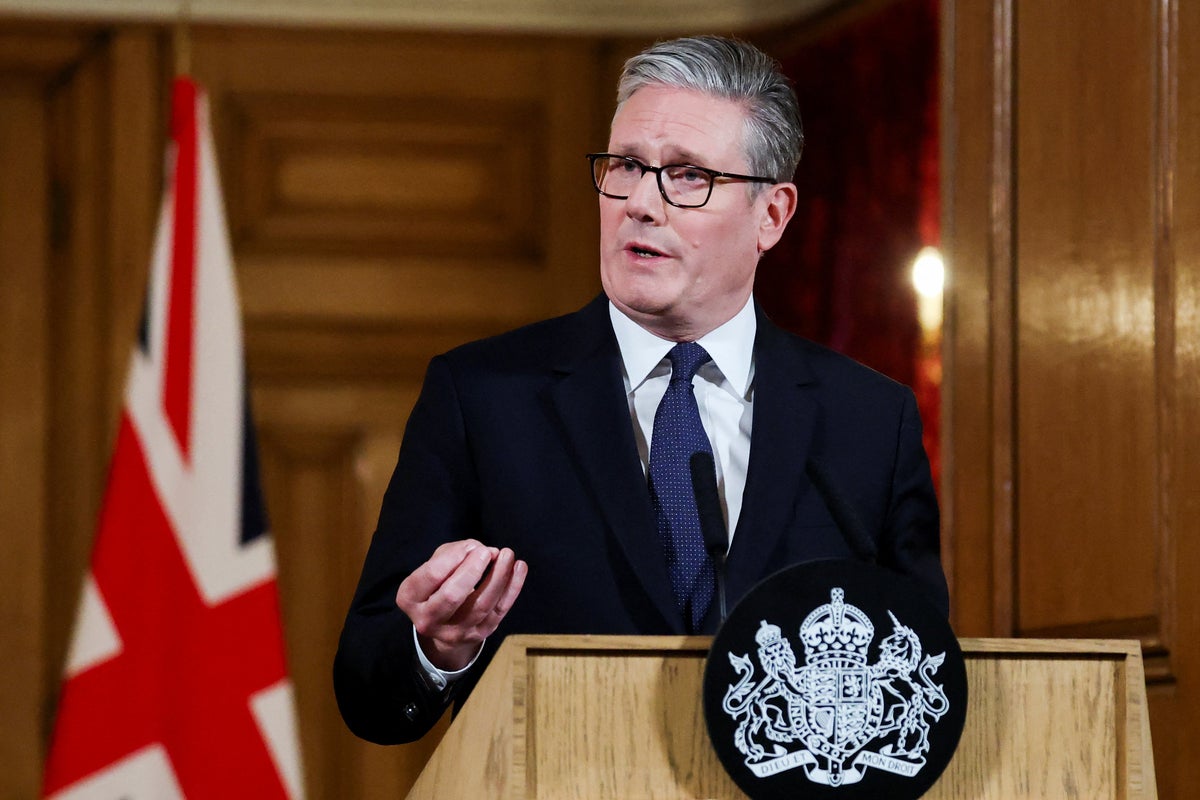Keir Starmer’s announcement that the UK will recognise a Palestinian state in September (unless Israel meets stringent conditions) was undeniable theatre.
But in the drama of the statement on Tuesday evening, there was a nagging sense that it was more performative than an act which would change things on the ground in Gaza and Israel.
Only time will tell whether Sir Keir has come to the right conclusion – and a majority of people believe he has – but the real issues are whether he has done it for the right reasons, and if it was an act of strength or weakness.

The fury from Israel’s prime minister Benjamin Netanyahu, who accused his British counterpart of “rewarding Hamas’s monstrous terrorism”, seemed to suggest a lack of influence the UK government has collectively and Sir Keir has personally.
While Labour’s foreign affairs select committee chair Dame Emily Thornberry suggested that Netanyahu’s reaction shows Britain does have influence, the fact is that it is quite clear that it will not shift Israeli policy one jot.
But maybe that does not matter.
Foreign secretary David Lammy was loudly applauded at the United Nations when he announced the intention to recognise a Palestinian state. It may not have been a complete coincidence that Arab countries including Qatar and Egypt issued a strong statement shortly afterwards, urging Hamas to disarm and give up control of Gaza.
But the reality is that the last few days have underlined that only one man can influence events in the Middle East outside the participants in the ongoing war – Donald Trump.
It seems highly significant that Sir Keir waited to have his meeting with Trump at Turnberry before following French president Emmanuel Macron’s lead on the recognition issue.
Added to that, the decision only seemed inevitable once Trump effectively gave permission for the UK to diverge from US policy, saying he had no problem with the prospect of Sir Keir taking a position on Palestinian statehood.
But in terms of money, weapons supply and political clout, it requires America to tell Israel to stop starving Palestinians and to force a ceasefire.
While Trump has said he wants to stop the hunger, his appetite to force a ceasefire is still in question.
Meanwhile, Sir Keir has tried to counterbalance the US power with the new E3 group – Britain, France and Germany.
This latest intervention came as a result of his E3 talks on Friday and Saturday. The group’s creation is viewed by some as a recognition in itself that the EU has lost some diplomatic clout as a result of Brexit and Europe’s three biggest powers needed to team up again.
The biggest problem he has is that whether it is Netanyahu, German chancellor Friedrich Merz or Trump, every international leader knows that Tuesday evening’s theatre was more about domestic politics for Sir Keir.
Factions within his cabinet and the wider Labour party, growing political pressure from the trade unions and MPs has forced his hand on Palestine to appease the domestic situation.
But perhaps most of all, the emergence of Jeremy Corbyn’s new party also genuinely spooked Sir Keir and his top team. Former Labour MP Jonathan Ashworth was among those who were ousted by pro-Gaza independent MPs last year, with health secretary Wes Streeting and justice secretary Shabana Mahmood coming dangerously close to losing their seats.
By coming out strongly against Israel’s actions in Gaza, Sir Keir will be hoping to secure the votes of wavering voters who may have been tempted to back Corbyn’s new pro-Gaza party.
So there is a sense that while Sir Keir has shown leadership and probably come to the right conclusion, however, the reasons that he has done so are more about weakness at home rather than strength on the international stage.




